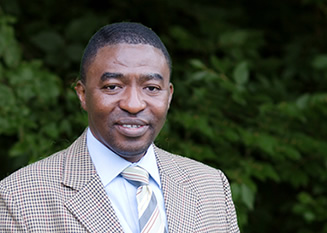Africa
Today 15% of the world’s population resides in Africa. Home to around 1 billion people, Africa’s population is growing rapidly. Estimates indicate Christians make up 49% of the population and Muslims 41% (Operation World). While Africa faces some of the greatest problems in the world in the form of poverty, inequality, disease and conflict, there is hope in Africa. The Christian Church is poised to exercise great influence on the continent. What this influence includes will largely be determined by the kinds of men and women who lead the Church. Our African partners are finding new and creative ways to train leaders for African realities, from rural ministry to senior theological leadership.
Major trends in theological education in Africa
- Theological education is moving toward a more holistic approach, hence courses in HIV/AIDS, Christian/Muslim relations, working with children at risk, etc., and the rise of the Christian university. Dr. Scott Cunningham, Dean of Leadership Development
- Africa is the world’s most rapidly urbanizing continent and has reached the tipping point from being majority rural to urban. There are major mission implications for theological education, since most of our partner schools are in urban centers. Rev. Dr. Victor Nakah, Former Regional Director for Africa
- An increased reliance on local resources is evidenced by an increase in the proportion of funding that is locally sourced and a decrease in missionaries for teaching, administration and governance. Dr. Cunningham and Rev. Dr. Nakah
- Few theological books have been written from an African perspective, so there is a major dependency on Western books. The need is even higher in Portuguese and Francophone Africa where libraries have a very limited number of books.
- Leadership training is recognized as the critical bottleneck. Leaders are in short supply at every level – for village congregations, for the urban educated, for theological training, for missionary endeavors and for national-level leadership. Africans must develop training the works for them and deals with the Afrocentric issues facing the Church. Operation World
- Islam is the major challenge for Christianity today – both the 182 million Muslims north of the Sahara and the 246 million in Sub-Saharan Africa. African Christians need to make Muslims a priority for demonstrations of the love of Christ, and culturally sensitive approaches must be developed for planting churches among them. The need to develop programs in Christian/Muslim relations is also high. Operation World

John Jusu, PhD
OC-USA Regional Director for Africa
“What makes Overseas Council’s vision very powerful is training nationals so that they can train their own people in their own context to better serve the Lord. Those who are investing their time, energy, skills and resources so that this vision is implemented are making a big contribution to the growth of God’s Kingdom. I personally was equipped by Overseas Council through their Institutes for Excellence as I was serving as Principal of the Shalom Evangelical School of Theology in Chad, one of Overseas Council’s partner schools for 11 years. The training at the Institute was so important to my ministry all those years. Now I have the privilege of joining Overseas Council as Regional Director for Francophone Africa to help strengthen theological education in that geographical area. I request your prayers so that the Lord would grant me wisdom and a servant’s heart to better fulfill my task to His glory.”
Mardochée Nadoumngar, PhD, OC-USA Regional Director for Francophone Africa
